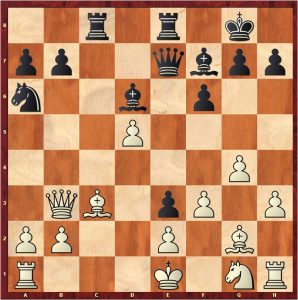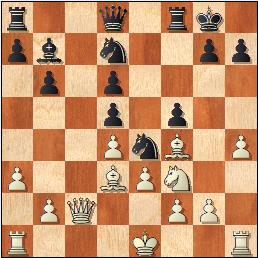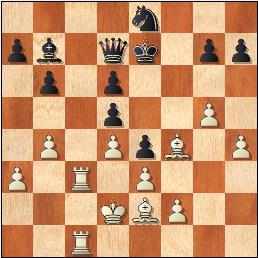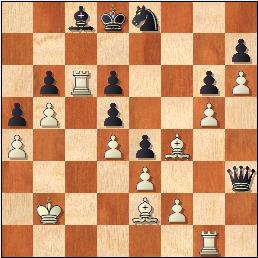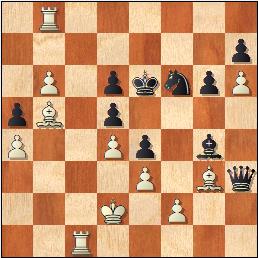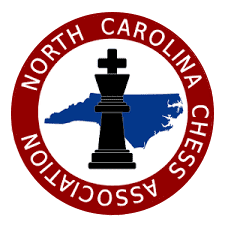
North Carolina Chess Association
NCCA officers
Charles Roberson – President
John Timmel – First Vice President
Grant Oen – Scholastic Vice President
Wayne H. Spon – Secretary/Treasurer
North Carolina Gambit – May 2023
In this issue, you will find:
Gordan Ray – NC Super Seniors
Charles Roberson – Individual Chess Game Probabilities
John Timmel – To Move and Win!
NC SUPER SENIORS – Gordan Ray
North Carolina senior chess players sixty-five years old or older will have an upcoming event on the tournament calendar that is designed especially for them. The North Carolina Super Senior Championship will be held on Saturday, July 22 in Wilson, North Carolina.
The idea of a Super Senior tournament comes from a loosely organized group of chess playing friends in eastern North Carolina that refer to themselves as the Retired Guys. The RG’s started over ten years ago when Gordan Ray invited several of these senior players to meet at his home for a one day rated tournament. Gordan started out with four players and then expanded it as the years went on. Over fifty different players have participated in these RG tournaments–most are over sixty years old. As the popularity of the event grew, Gordan moved the tournament to the local Senior Center in Bailey. Retired Guys one day tournaments now draw from eight to sixteen players once every two weeks. Most RG participants are rated U1800 but former NC Senior Champion John Smithwick and the current NC Senior Champion Henry Hasman have played in recent RG events.
What are some of the features of the Super Senior that might appeal to sixty-five plus age group? Since it is a one day event, you might not have to reserve a hotel for an overnight stay. Wilson does have lodging if you should choose to stay overnight. A G/60 d5 time control means your games will be decided reasonably quickly and you will not have to battle your opponent for four or more hours each round. A low entry fee is another appealing factor. The ten dollar entry fee not only puts you in the tournament but also gets you lunch and a shot at multiple board prizes. Many of our stronger seniors will have a good chance at winning a recognized state title. Finally, we will get to spend a day among people with whom we have shared many life and chess experiences.
The RG’s are grateful for local support for this first Super Senior Championship. The Wilson County Library is allowing us to use one of their rooms to hold the event. A generous local donor has helped with expenses. Gordan Ray has offered to serve as tournament director. I encourage you to read all tournament details on the NC Chess tournament website. Mark your calendar for this event and make plans to attend. But, be sure to register online as soon as possible to allow Gordan to make proper preparations. Note that there will be no onsite registration. Feel free to call Gordan Ray at 252-292-6324 if you have questions or suggestions.
Individual Chess Game Probabilities – by Charles Roberson 8/31/2012
Many have seen the rating probability charts of the Elo rating system. Such charts quote the performance probabilities for match play such as 64% win and 36% lose for a match between two opponents where one has higher Elo rating by 102 points. In that case, the higher rated competitor is expected to win 64% of the match points and the lower rated competitor is expected to win 36% of the match points. This seems simple enough, however I have heard numerous chess players claim these same probabilities for individual game outcomes. In other words, some say the higher rated player (by 102 Elo) has a 64% chance of winning the game. This is quite wrong!
Match probabilities and individual game probabilities are not the same! A simple proof is as follows. The probabilities for all possible outcomes must add up to 100. In a match with one player having an Elo rating 102 points higher than his opponent, the misused match play probabilities predict a 64% chance of winning and a 36% chance of a lose. This adds up to 100, but wait! What about the probability of drawing? Would you say that the probability of a draw between two such opponents equals 0? Of course not. That alone proves that match probabilities are not equal to individual game probabilities.
There exists a simple method to create the game probability equations using the match play probabilities. For an Elo gap of 102 points, the higher rated player should win 64 points out of 100 where a win gets 1 point, a lose gets 0 points and a draw gets 0.5 points. There are numerous ways for a 100 game match to produce 64 points for the higher rated player. To simplify, we can consider the two extreme cases and calculate an average. The first case is 64 wins, 36 loses and 0 draws. Of course, this is rather unlikely, but it is an extreme case. The second case is 28 wins, 0 loses and 72 draws which also adds to 64 points. This is the other extreme case and it is as unlikely as the first. Now, we can calculate the average case using the two extreme cases. For the wins, we have (64+28)/2 = 46. For the loses, we have (36+0)/2 = 18. Finally, the draw probabilities are (72+0)/2 = 36. These probabilities should add to 100. Checking that, we get 46% wins + 18% loses + 36% draws = 100%. So, the probability of the 102 point higher rated player wining a specific game is 46% instead of the match play probability of 64%. His probability of losing the game is 18% instead of the match play probability of 36% and the probability of drawing the game is 36%. From these observations and others for various Elo mismatches, we get the following three equations for calculating individual game probabilities for the higher rated player:
(1) Draw percentage = match play probability of losing.
- Lose percentage = match play probability of losing / 2.
- Win percentage = 100 – draw percentage – lose percentage.
Here are some rating gaps with the match play and individual game rating probabilities.
| Rating Gap | Match Win % | Match Lose % | Game Win % | Game Draw % | Game Lose % |
| 50 | 57 | 43 | 35.5 | 43 | 21.5 |
| 102 | 64 | 36 | 46 | 36 | 18 |
| 149 | 70 | 30 | 55 | 30 | 15 |
| 202 | 76 | 24 | 64 | 24 | 12 |
| 251 | 81 | 19 | 71.5 | 19 | 9.5 |
| 296 | 85 | 15 | 77.5 | 15 | 7.5 |
| 351 | 89 | 11 | 83.5 | 11 | 5.5 |
| 401 | 92 | 8 | 88 | 8 | 4 |
| 470 | 95 | 5 | 92.5 | 5 | 2.5 |
| 501 | 96 | 4 | 94 | 4 | 2 |
To Move and Win!
This month we feature the great Indian player Sultan Khan.
At the elite tournament in Hastings in 1930-31, Sultan Khan finished third behind future world champion Max Euwe,
and former world champion José Raúl Capablanca. Capablanca, considered by many to still be the world’s strongest player, was defeated by Khan in a style reminiscent of Capablanca himself.
Sultan Khan, Mir – Capablanca, Jose Raul Hastings, 1930
1.Nf3 Nf6 2.d4 b6 3.c4 Bb7 4.Nc3 e6 5.a3 d5 6.cxd5 exd5 7.Bg5 Be7
8.e3 0-0 9.Bd3 Ne4 10.Bf4 Nd7 11.Qc2 f5 12.Nb5 Bd6 13.Nxd6 cxd6 14.h4!
14…Rc8 15.Qb3 Qe7 16.Nd2 Ndf6 17.Nxe4 fxe4 18.Be2 Rc6
19.g4 Rfc8 20.g5 Ne8 21.Bg4 Rc1+ 22.Kd2 R8c2+ 23.Qxc2 Rxc2+ 24.Kxc2 Qc7+
25.Kd2 Qc4 26.Be2 Qb3 27.Rab1 Kf7 28.Rhc1 Ke7 29.Rc3 Qa4 30.b4 Qd7 31.Rbc1
31…a6 32.Rg1 Qh3 33.Rgc1 Qd7 34.h5 Kd8 35.R1c2 Qh3 36.Kc1 Qh4
37.Kb2 Qh3 38.Rc1 Qh4 39.R3c2 Qh3 40.a4 Qh4 41.Ka3 Qh3
42.Bg3 Qf5 43.Bh4 g6 44.h6 Qd7 45.b5 a5 46.Bg3 Qf5 47.Bf4 Qh3
48.Kb2 Qg2 49.Kb1 Qh3 50.Ka1 Qg2 51.Kb2 Qh3 52.Rg1 Bc8
sad but necessary to stop Bg4 53.Rc6 – and now black’s game collapses
53…Qh4 54.Rgc1 Bg4 55.Bf1 Qh5 56.Re1 Qh1 57.Rec1 Qh5
58.Kc3 Qh4 59.Bg3 Qxg5 60.Kd2 Qh5 61.Rxb6 Ke7
62.Rb7+ Ke6 63.b6 Nf6 64.Bb5 Qh3 65.Rb8
1-0
The following comes from Martin Roper
Golden Knights Semi-final 1996
